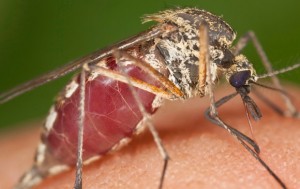Serving Garner, Holly Springs, Fuquay Varina, Knightdale and Clayton, NC
Mosquitoes are annoying and are carriers of disease in North Carolina.
Here are some facts about mosquitoes:
 Lawn Doctor allows you to take back your lawn for your family and pets! Mosquitoes are not only annoying and scary, but can actually affect the health of your family and pets! Many are easily and quietly carried into your home on clothing, shoes or pet fur. This can create health issues.
Lawn Doctor allows you to take back your lawn for your family and pets! Mosquitoes are not only annoying and scary, but can actually affect the health of your family and pets! Many are easily and quietly carried into your home on clothing, shoes or pet fur. This can create health issues.
Most times, you won’t know you’ve lost the battle until it’s too late. So don’t wait! Our rates are very reasonable and you can even signup for single applications for those special outdoor gatherings!
As your local Lawn Doctor, we implement a Yard Armour program that protects your family by treating your entire lawn. While no product will totally eradicate pests, our Yard Armour will substantially reduce mosquito populations and greatly minimize the likelihood of infestation.
Survey Results Show
74% of respondents were bothered every day or a few days a week. 60% alter their behavior because of mosquitoes. 80% reported most commonly bitten in yards or neighborhood sidewalks.*
Mosquito Biology
Mosquitoes are insects that are close relatives of houseflies. There are four stages of growth in the mosquito life cycle ? egg, larva, pupa and adult. The eggs of some types of mosquitoes are laid on water and hatch in one or two days. Eggs of other types of mosquitoes are laid in places that are dry but will fill with water. These eggs may survive several months before hatching. Larvae hatch from the eggs and live, feed and grow in the water. Fully-grown larvae change into pupae. During the pupal stage, feeding stops and changes occur that lead to the adult stage. Adults emerge from the pupae, leave the water and take to the air. The cycle from egg to adult mosquito may be as short as a week. Soon after becoming adults, male and female mosquitoes mate. Only the female mosquito takes a blood meal; this is required to produce her eggs. Each type of mosquito may prefer blood from a different kind of animal ? birds, frogs, deer or humans. There are more than 60 types of mosquitoes in North Carolina. Many of these are not a problem because they do not attack humans. Adult mosquitoes may live about two to three weeks, during this time the female can take several blood meals and lay hundreds of eggs.
Mosquitoes and Disease
 Mosquitoes are carriers (or vectors) of many diseases around the world. Malaria, yellow fever, dengue fever and filariasis (or philariasis) are some of the most common. While these diseases occur overseas, they are not currently spread by mosquitoes in North Carolina. Malaria was once found throughout the southern United States but has been stopped in this country as a result of mosquito control, medical treatment and improved living conditions. In North Carolina, three viruses are carried by mosquitoes to people ? Eastern equine, La Crosse and West Nile. In some cases, the illness caused by these viruses may be severe and result in encephalitis or death. Heartworm is a common disease of dogs carried by mosquitoes. **
Mosquitoes are carriers (or vectors) of many diseases around the world. Malaria, yellow fever, dengue fever and filariasis (or philariasis) are some of the most common. While these diseases occur overseas, they are not currently spread by mosquitoes in North Carolina. Malaria was once found throughout the southern United States but has been stopped in this country as a result of mosquito control, medical treatment and improved living conditions. In North Carolina, three viruses are carried by mosquitoes to people ? Eastern equine, La Crosse and West Nile. In some cases, the illness caused by these viruses may be severe and result in encephalitis or death. Heartworm is a common disease of dogs carried by mosquitoes. **
For a free estimate on how Lawn Doctor’s Yard Armour Mosquito can help you, give us a call today.
Areas of service include: Holly Springs, Fuquay-Varina, Willow Springs, Garner, Clayton, Knightdale and Raleigh zip codes 27603 & 27610
* Survey from University of Maryland, Department of Environmental Science & Technology, College of Agriculture & Natural Resources
** North Carolina Mosquito & Vector Control Association
